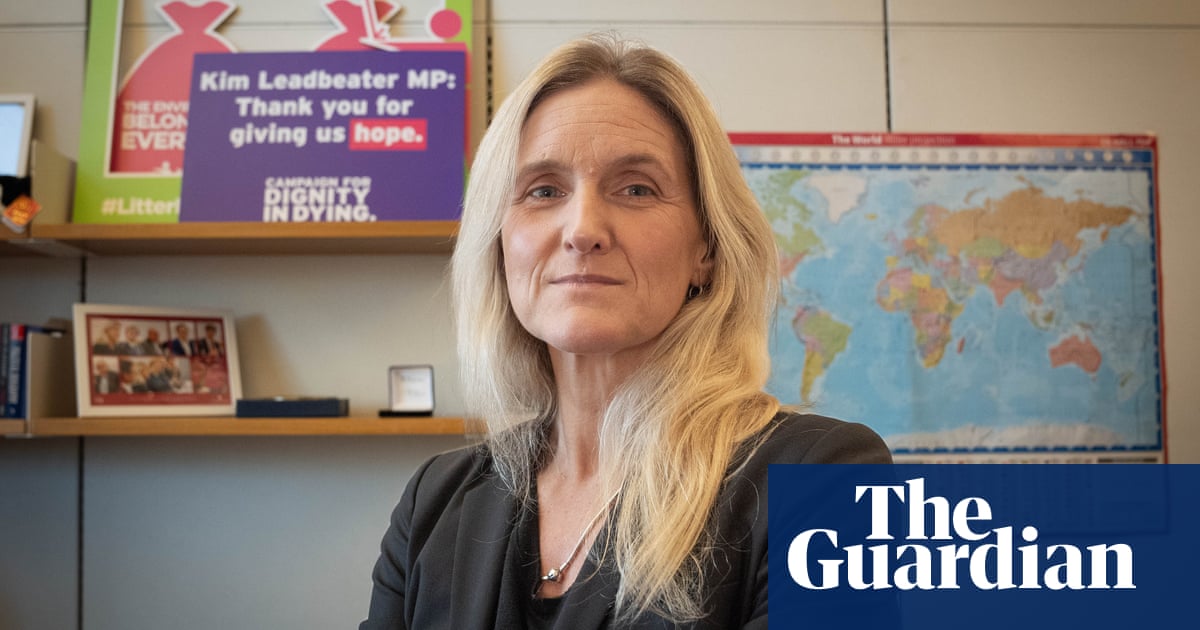Doctors in England and Wales will not be permitted to raise assisted dying with patients without first explaining palliative care and other support options, Kim Leadbeater has said, tabling a series of new amendments to her bill, detailed scrutiny of which will begin next week.
A committee of MPs will begin line-by-line examination of the terminally ill adults bill next week including a number of amendments added by Leadbeater, some on government advice. A number of concerns about the bill were put forward by expert witnesses at hearings last week, including about protection from coercion and measuring mental capacity.
The amendments were drafted in cooperation with ministers and officials at the Department of Health and the Ministry of Justice, it is understood, though, the government technically remains neutral on the bill. Two ministers, Stephen Kinnock and Sarah Sackman, will sit on the bill committee.
The changes will mean doctors cannot mention the provision of assisted dying in isolation in their first discussions with patients but must set out any treatment and palliative care options available, including psychological support.
Doctors will need to produce a detailed report on mental capacity and coercion, and training will have to be provided for medical practitioners in assessing capacity and identifying coercion. Experts in capacity and coercion would have to be consulted on training regimes, as would the Equality and Human Rights Commission.
The British Medical Association (BMA), which gave evidence to a committee of MPs scrutinising Leadbeater’s private member’s bill, has said doctors must be allowed to discuss assisted dying sensitively with patients if it becomes law, despite qualms from a number of MPs. The BMA said it would be “an unacceptable intrusion of legislation into the privacy of the consulting room” to ban it being mentioned.
The Guardian has previously reported that up to 30 MPs who backed assisted dying could withdraw their support at the next parliamentary vote amid concerns about the way doctors would be allowed to raise the issue and about protection from coercion. At the top of MPs’ demands for change was that the bill should not permit medical professionals to suggest assisted dying to terminally ill patients.
However, the amendment does not ban that practice, but mandates that other options must be given.
In a letter to all MPs, Leadbeater wrote: “The government remains neutral but, as ministers have explained, they have a responsibility to the statute book, and officials at both departments have done an excellent job in drafting changes, many of them technical, to help ensure the bill is workable and legally sound in all respects.
“It is extremely important to get the details of the legislation right, and enhance it where necessary, particularly with regard to safeguards, but we must also not lose sight of the fact that the current legal situation is unacceptable and deeply problematic, inflicting terrible injustices on terminally ill people and their families at their most vulnerable time.”
after newsletter promotion
Leadbeater said England’s chief medical officer, Prof Chris Whitty, had said in his evidence to the committee that any system should not create a “bureaucratic thicket” that would be too difficult for a person in the last six months of their life to navigate.
She said: “We need to give terminally ill people choice, autonomy and dignity whilst ensuring the most rigorous safeguards are embedded in the legislation. With that in mind, I believe this bill provides an opportunity to develop the very best end of life care, conversations and choice with ‘gold standard’ training.”
Further amendments are expected in the coming weeks as MPs go through different aspects of the bill.











